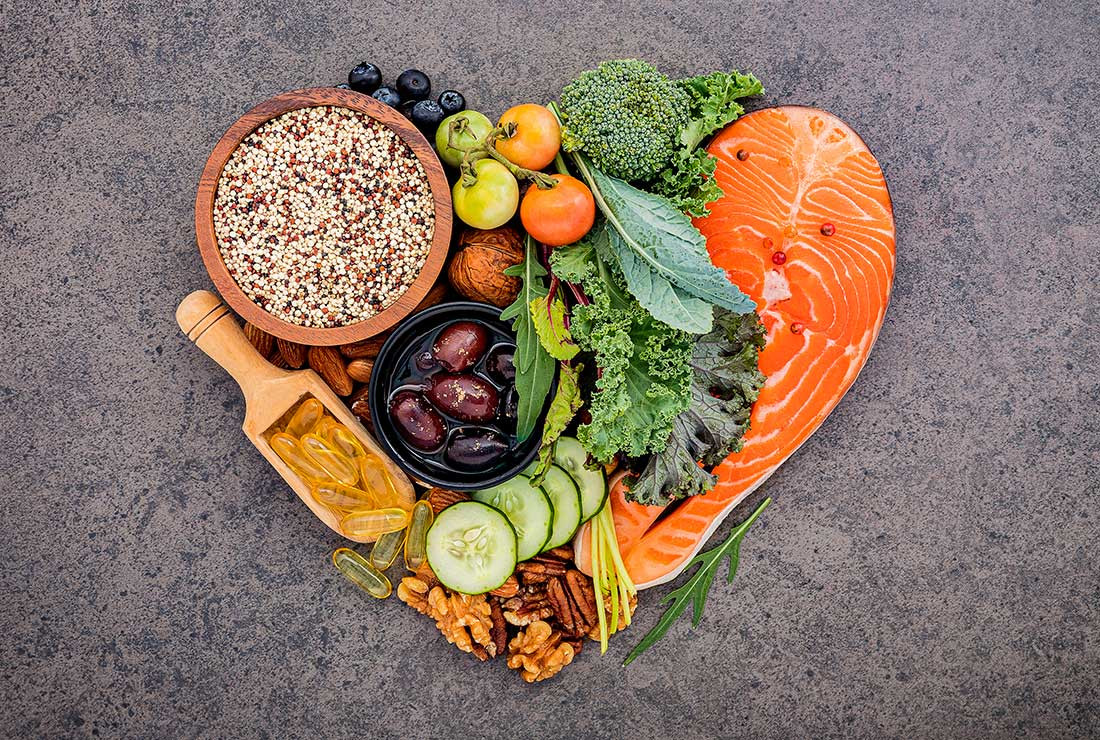5 Creative Plant Based Chicken Dishes That Go Beyond the Basics
5 Creative Plant Based Chicken Dishes That Go Beyond the Basics
Blog Article
Everything About Healthy And Balanced Food: Advantages of Checking Out Plant Based Alternatives
The conversation bordering plant-based diets has actually obtained substantial focus in recent times. Several people are checking out the prospective health and wellness benefits, nutritional benefits, and environmental effects associated with these dietary selections. As people end up being much more knowledgeable about their food's impact on wellness and sustainability, concerns develop about the practicalities of taking on such a lifestyle. What specific adjustments can one anticipate, and how might these options improve not just personal wellness yet likewise the planet's future?
Understanding Plant-Based Diets
Although many individuals connect plant-based diets mostly with vegetarianism or veganism, these diet regimens can include a vast array of eating patterns that prioritize whole, minimally refined plant foods. Such diets usually consist of fruits, veggies, entire grains, nuts, legumes, and seeds, while restricting or eliminating animal items. This flexibility enables people to tailor their nutritional choices according to individual choices and nutritional requirements. Some may adopt a largely plant-based diet while still occasionally consuming meat or milk, typically referred to as a flexitarian approach. The focus continues to be on including more plant foods, which can lead to a varied array of dishes and flavors. Recognizing these different analyses of plant-based eating is vital for valuing its accessibility and allure in contemporary food culture.
Health And Wellness Perks of Plant-Based Foods
The health and wellness advantages of plant-based foods are significant, providing a nutrient density advantage that supports general health. Study shows that these foods can boost heart health and wellness and play a vital function in effective weight administration. By integrating a lot more plant-based alternatives, people might enhance their dietary choices and promote long-lasting health and wellness.
Nutrient Density Advantage
Nutrient density plays a vital duty in the health benefits of plant-based foods, making them an engaging option for those seeking a balanced diet regimen. Plant-based foods, such as fruits, vegetables, vegetables, nuts, and entire grains, are commonly rich in vital vitamins, minerals, and antioxidants while being lower in calories. This high nutrient density enables individuals to consume less calories while still meeting their nutritional needs. Additionally, these foods are loaded with nutritional fiber, advertising digestive system wellness and helping in weight administration. By integrating nutrient-dense plant-based options, customers can boost their general wellness, sustain their body immune systems, and minimize the risk of chronic conditions. Eventually, the nutrient thickness of plant-based foods underscores their importance in a health-conscious lifestyle.
Heart Health And Wellness Enhancement

Weight Management Support
In enhancement to promoting heart health, a plant-based diet regimen can considerably assist in weight administration. This dietary strategy highlights entire foods such as fruits, vegetables, vegetables, nuts, and whole grains, which are usually lower in calories and greater in fiber contrasted to animal-based items. The high fiber content assists increase satiety, lowering overall calorie consumption. Plant-based diets are often rich in crucial nutrients while low in undesirable fats, making it simpler to keep a healthy weight. Research study shows that people that take on a plant-based way of living often tend to have lower body mass indexes (BMIs) and experience more successful fat burning compared to those that consume meat-heavy diets. Accepting plant-based options is a strategic option for reliable weight administration.
Nutritional Value of Plant-Based Components
Plant-based ingredients are abundant in necessary nutrients, using a varied selection of vitamins, minerals, and antioxidants that add to general wellness. A contrast of protein sources discloses that while animal products are usually deemed exceptional, numerous plant-based options provide appropriate healthy protein and various other useful substances. Understanding the dietary value of these ingredients can help individuals make informed nutritional selections.
Important Nutrients in Plants
Nutrient-rich active ingredients located in plants offer a diverse selection of necessary minerals and vitamins that contribute considerably to overall health and wellness. These components are abundant in vitamins A, C, and K, which sustain immune feature, vision, and blood clotting, specifically. Additionally, plants supply vital minerals such as magnesium, potassium, and calcium, critical for heart health, muscular tissue function, and bone strength. The visibility of fiber in plant-based foods help digestion and promotes a healthy and balanced gut microbiome. Antioxidants, found generously in veggies and fruits, aid combat oxidative anxiety and decrease swelling. Several plant foods are reduced in calories yet high in nutrients, making them a superb selection for those seeking to maintain a healthy and balanced weight while making sure ideal nutrient intake.

Contrasting Healthy Protein Resources
Healthy protein sources vary considerably in their nutritional accounts, with plant-based active ingredients using distinct advantages. Unlike animal healthy proteins, which frequently include saturated fats and cholesterol, plant healthy proteins often tend to be lower in these unhealthy parts. Legumes, nuts, seeds, and entire grains are abundant in vital amino acids, fiber, vitamins, and minerals. Lentils supply high healthy protein material alongside significant iron and folate, while quinoa is a full healthy protein, using all 9 vital amino acids. Additionally, plant-based proteins are commonly come with by anti-oxidants and phytochemicals that support overall health. The change to plant-based healthy protein sources not just enhances dietary intake however additionally lines up with sustainable nutritional techniques, decreasing ecological influence and promoting long-lasting health advantages.
Ecological Effect of Plant-Based Consuming
As awareness of environment adjustment expands, numerous individuals are discovering sustainable dietary choices that can greatly minimize their environmental impact. Plant-based consuming has arised as a considerable contributor to lowering greenhouse gas discharges, which are largely linked with livestock production. The check out here growing of fruits, veggies, grains, and beans commonly needs fewer sources, such as water and land, compared to animal farming. In addition, plant-based diets can lead to lowered logging, as less land is required for grazing animals or growing pet feed. By moving in the direction of plant-based options, consumers can support biodiversity and advertise much healthier communities. Generally, hop over to here accepting plant-based eating not just advantages individual health yet also represents an essential step towards environmental sustainability and preservation initiatives.
Overcoming Common Misconceptions
While many individuals acknowledge the benefits of a plant-based diet, a number of false impressions typically prevent them from totally embracing this way of life. An usual belief is that plant-based diet plans lack enough healthy protein; nevertheless, various plant resources, such as legumes, nuts, and tofu, offer ample healthy protein. In addition, some presume that this diet regimen is expensive, when in reality, staples like beans, rice, and seasonal veggies can be rather inexpensive. One more false impression is that plant-based consuming is overly limiting, whereas it really provides a varied variety of flavors and foods. Finally, lots of worry that a plant-based diet regimen might bring about shortages, yet with proper planning, people can obtain all needed nutrients, consisting of minerals and vitamins, while taking pleasure in a wide variety of scrumptious meals.
Tips for Transitioning to a Plant-Based Lifestyle
Making the shift to a plant-based way of life can be an improving experience, though it often requires some assistance to navigate the first adjustments. First, individuals are encouraged to begin progressively, integrating more fruits, vegetables, beans, and whole grains into their meals while minimizing meat and milk usage. Dish planning is necessary; preparing a weekly menu can aid reduce the adjustment and prevent last-minute harmful choices. Discovering new dishes and cooking techniques can also enhance the experience and maintain enjoyment regarding plant-based eating. Additionally, joining support system or neighborhoods can give inspiration and share useful suggestions. Lastly, remaining informed about nourishment warranties balanced dishes, avoiding shortages while promoting a healthy, rewarding plant-based way of living.
Delicious Plant-Based Dish Concepts
Discovering tasty plant-based meal ideas can inspire people to embrace a much more healthy diet regimen. One popular choice is a hearty quinoa salad, including cherry tomatoes, cucumber, and a zesty lemon-tahini dressing. Another fave is a savory lentil stew, packed with carrots, celery, and aromatic herbs, best for a comforting supper. For breakfast, over night oats made with almond milk, chia seeds, and topped with fresh berries give a nourishing begin to the day. Furthermore, a lively vegetable stir-fry with tofu and a selection of vivid veggies can be a quick yet satisfying meal. Lastly, luscious avocado salute on whole-grain bread, sprinkled with spices and seeds, provides a simple yet tasty snack. These meals display the selection and my latest blog post splendor of plant-based consuming.

Regularly Asked Questions
Can a Plant-Based Diet Plan Supply Enough Protein?
The concern of whether a plant-based diet can give adequate protein prevails. Countless resources, consisting of vegetables, nuts, seeds, and whole grains, can fulfill healthy protein requires successfully, supporting a well balanced and nutritious diet regimen for people.
Are Plant-Based Diet Plans Suitable for Kid?
The viability of plant-based diet regimens for children relies on careful preparation. Sufficient nutrients should be assured, including vitamins, healthy proteins, and minerals. With proper support, such diet regimens can support healthy development and development in kids.
Just how Do I Eat in restaurants on a Plant-Based Diet regimen?
Eating in restaurants on a plant-based diet regimen involves seeking dining establishments with varied menus, requesting adjustments, and exploring vegan-friendly options. Planning ahead and communicating dietary choices can enhance the dining experience while preserving nutritional options.
What Prevail Allergens in Plant-Based Foods?
Typical irritants in plant-based foods consist of soy, gluten, nuts, and seeds - Plant Based Chicken. People following a plant-based diet ought to understand these irritants and read labels meticulously to avoid unfavorable reactions and guarantee safe consumption
Can Plant-Based Diets Aid With Weight Reduction?
Research study suggests that adopting a plant-based diet may help with weight management as a result of its commonly lower calorie density and higher fiber web content. This mix can boost satiety, assisting individuals manage their caloric intake efficiently. Many people link plant-based diets generally with vegetarianism or veganism, these diets can incorporate a vast array of consuming patterns that focus on whole, minimally processed plant foods. Nutrient density plays an important function in the health benefits of plant-based foods, making them an engaging selection for those looking for a balanced diet. Plant-based diet plans have been shown to significantly improve heart health, as they frequently include elements that sustain cardiovascular function. In enhancement to advertising heart wellness, a plant-based diet regimen can considerably assist in weight management. An usual belief is that plant-based diets do not have adequate healthy protein; however, various plant sources, such as beans, nuts, and tofu, supply enough protein.
Report this page